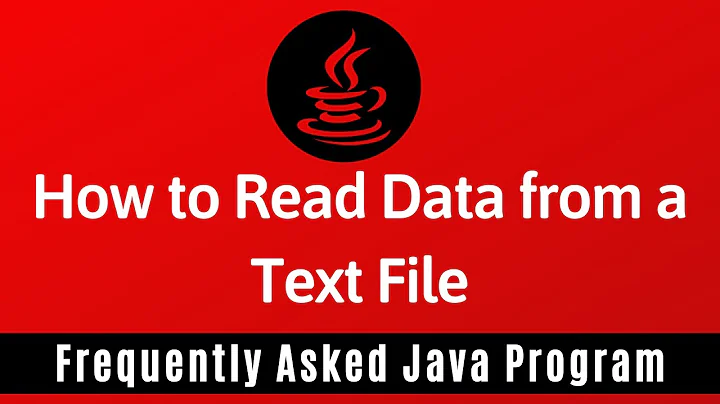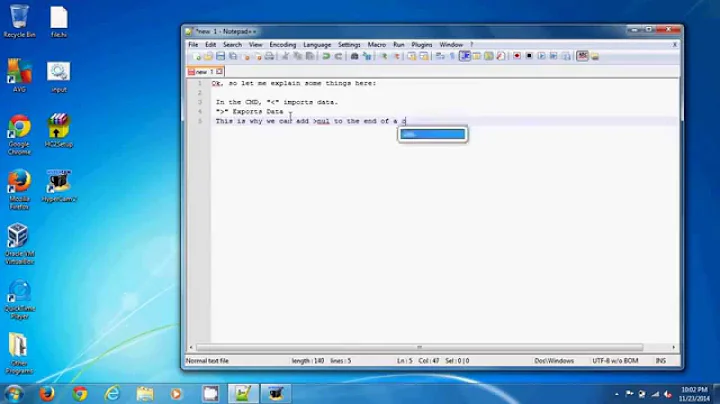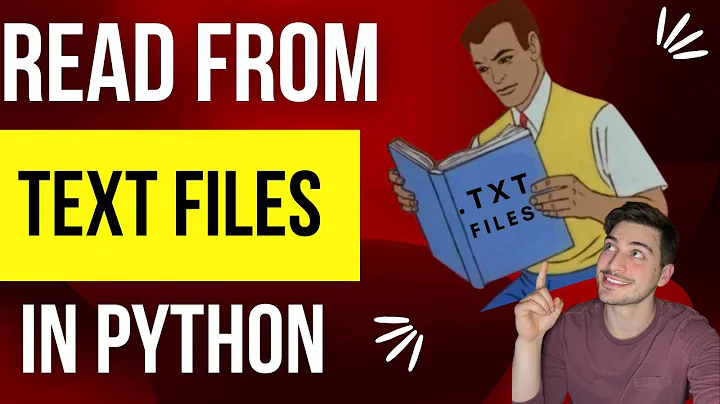Read text file and store the info into variable
Solution 1
It looks like sci.txt doesn't end in a new line character. As explained in man ksh, the read builtin reads up to the first newline character by default:
read [ -ACSprsv ] [ -d delim] [ -n n] [ [ -N n] [ [ -t timeout] [ -u
unit] [ vname?prompt ] [ vname ... ]
The shell input mechanism. One line is read and is broken up
into fields using the characters in IFS as separators. The
escape character, \, is used to remove any special meaning for
the next character and for line continuation. The -d option
causes the read to continue to the first character of delim
rather than new-line.
So, unless you use -d, it will be looking for a newline character. If your file doesn't have one, it will not actually read anything. To illustrate:
$ printf 'demo1|demo2|demo3\n' > sci.newline
$ printf 'demo1|demo2|demo3' > sci.nonewline
$ cat foo.sh
#!/usr/bin/ksh
for file in sci.newline sci.nonewline; do
echo "Running on: $file"
while IFS='|' read -r fdate rdate dcname
do
echo "$fdate $rdate $dcname"
done < "$file"
done
Running this script returns the expected output on sci.newline but nothing for sci.nonewline:
$ foo.sh < sci.nonewline
Running on: sci.newline
demo1 demo2 demo3
Running on: sci.nonewline
So, if your file ends with a newline (\n), everything should work as expected.
Now, the reason your echo statement works outside the loop is because the loop is never even run. When read doesn't encounter a \n character, it returns a non-0 (failure) exit status. The while SOMETHING; do construct will run only as long as SOMETHING is successful. Because read fails, the loop is never run and the echo inside the loop isn't executed. Instead, the script will run the read command and assign the variables and then, since the read returns failure, it will move on to the next part. That's why the next echo, the one outside the loop works as expected.
Solution 2
while IFS=" ," read a b c; do
echo a: $a b: $b c: $c
done < SCI.txt
Related videos on Youtube
Siddharth Ramakrishnan
Updated on September 18, 2022Comments
-
Siddharth Ramakrishnan almost 2 years
I have a text file in which the records are in any one of the formats below:
SCI.txt
12-12-1990 12-12-1991 CSE DepartmentOr
12-12-1990,12-12-1991,CSE DepartmentI want them to be stored in 3 variables
a,b,cI am looking for reading a txt file and storing the values into variable using shell script (ksh).
--- Update ---
I have nearly tried all the methods which are available over the internet. I couldnt able to get them worked.
Right now I am trying this method.
#!/usr/bin/ksh #reading the file content and storing in variable _input="sci.txt" while IFS='|' read -r fdate rdate dcname do echo "$fdate $rdate $dcname" done < "$_input"sci.txt content as follows
demo1|demo2|demo3But I am not getting any output for the above method.
-
Siddharth Ramakrishnan almost 8 yearsThis worked. I am so stupid and thought echo is not printing anything.
-
Siddharth Ramakrishnan almost 8 yearsThanks, I got the desired answer. But whats the difference between these "echo "a:$a b:$b c:$c"" and "echo "$a $b $c""
-
 terdon almost 8 years@SiddharthRamakrishnan nothing, really. Just that
terdon almost 8 years@SiddharthRamakrishnan nothing, really. Just thatecho "b:$b"will print an extrab:that helps you identify which variable is being printed. So, if$bisfoo,echo "b:$b"will printb:foowhileecho "$b"will only printfoo. -
 Stéphane Chazelas almost 8 yearsThat doesn't explain why the code in the OP's question doesn't work though. It works for me provided
Stéphane Chazelas almost 8 yearsThat doesn't explain why the code in the OP's question doesn't work though. It works for me provideddemo1|demo2|demo3is terminated by a newline character. -
 terdon almost 8 years@StéphaneChazelas since I'm sure you know, could you explain why the
terdon almost 8 years@StéphaneChazelas since I'm sure you know, could you explain why theecho $varswill work outside the loop? I assume it has something to do withreadseeing theeofbut I don't understand the mechanics well enough to explain it. -
 Stéphane Chazelas almost 8 years@SiddharthRamakrishnan
Stéphane Chazelas almost 8 years@SiddharthRamakrishnanechocould print nothing if$fdatestarts with\c. Generally, you want to useprintf '%s\n' "..."instead ofechofor arbitrary data. Here, the fact that it works outside of the loop suggests the line is not terminated (readreturns a non-zero exit status because it can't read a complete line, so you don't enter the loop). Best would be to fix your input so it contains a full line of text. If not usewhile IFS='|' read -r a b c || [ -n "$a$b$c" ]though that could still fail if the unterminated line contains just|| -
 terdon almost 8 years@StéphaneChazelas but if the loop is skipped, why are the variables set outside it?
terdon almost 8 years@StéphaneChazelas but if the loop is skipped, why are the variables set outside it? -
 Stéphane Chazelas almost 8 years@terdon, in
Stéphane Chazelas almost 8 years@terdon, inprintf foo | read a,readdoes set$ato foo but exits with a non-zero exit status. Trya=bar; printf foo | { read a; echo "$?: $a"; }





